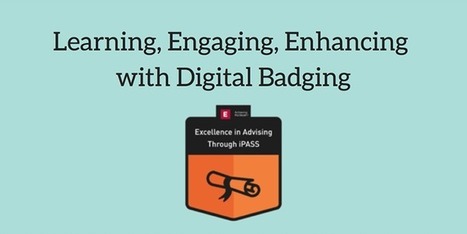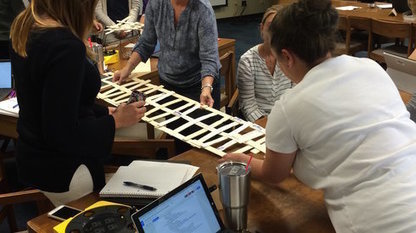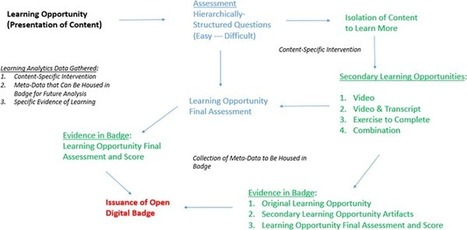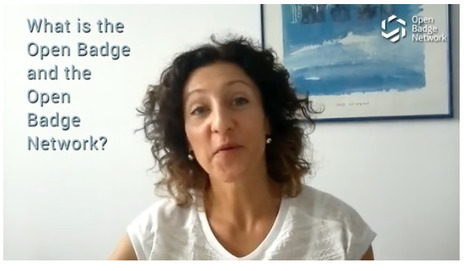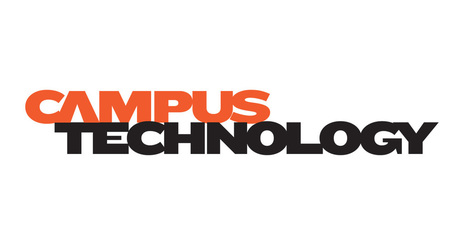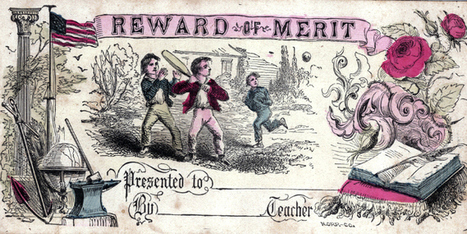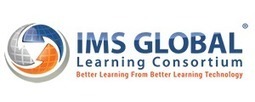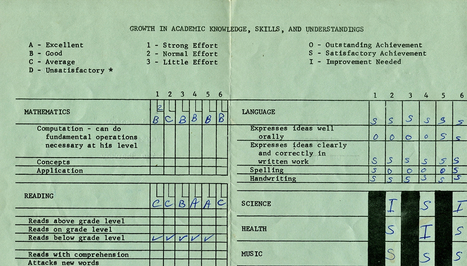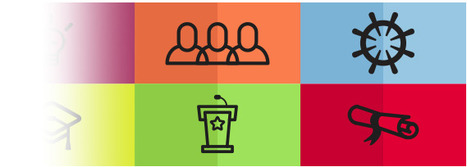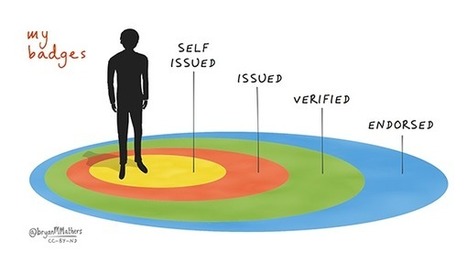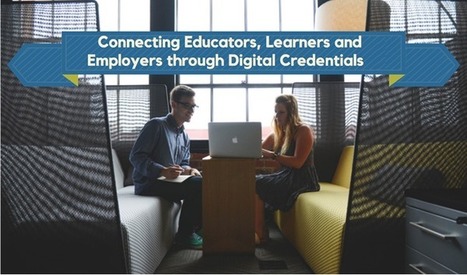 Your new post is loading...
 Your new post is loading...
Privacy is a human right, and businesses need to remember that. So do governments.
Key Takeaways
Despite the widely acknowledged value of traditional college degrees, the options for alternative postsecondary degrees continue to grow — not least because a traditional degree's meaning in terms of the knowledge and skills of the bearer often seems ambiguous.
Given this ambiguity, some employers have taken the once-unthinkable step of removing a bachelor's degree from job requirements — even for highly skilled, professional roles.
Facing the proliferation of degree and certification types, issuing institutions, learning technology vendors, and employers must come together to establish standards and recognized practices for managing programs and granting credentials.
The Massachusetts Institute of Technology has issued learner-owned academic credentials on the blockchain. The University’s Digital Diploma Pilot Program allowed a select cohort of students to receive both a paper diploma and a digital diploma anchored to the blockchain. Digital diplomas are encoded using the open-source Blockcerts standard, which was developed by Learning Machine Technologies and the MIT Media Lab.
Speaking to MIT News, Registrar and Senior Associate Mary Callahan said, “From the beginning, one of our primary motivations has been to empower students to be the curators of their own credentials. This pilot makes it possible for them to have ownership of their records and be able to share them in a secure way, with whomever they choose.”
Blockcerts was published under the MIT open source license in 2016, leading to its adoption around the world by companies, governments, and researchers seeking to build their own applications for issuing and verifying documents on the blockchain. It was released prior to any commercial applications in order to avoid a standards war and vendor lock-in, problems common during the early stages of adopting any fundamentally new technology.
Motivating busy higher education professionals to learn and engage with one another isn't always an easy task; there are plenty of logistical hurdles, and often, little recognition of one's efforts in an initiative. As a partner in a high impact grant program, our team at Achieving the Dream sought to change that.
Next time you want to reward students or teachers for going above and beyond, consider how you might turn that recognition into something substantial—something a high-achiever can add to a résumé or an e-portfolio.
Give them a digital badge for excelling in a skill such as teamwork or leadership, and they can take it with them as evidence after they graduate or should they seek advancement in their careers.
A growing number of districts now award digital badges to students who demonstrate creativity and critical thinking, and even for noteworthy experiences in after-school programs.
“I think it’s going to raise our graduation rate,” said Nokomis Principal Mary Nadeau. “It’s going to free us from backtracking. We can just cut to the chase and say, ‘Can you do this?’”
If a student can write a great essay by the end of 10th grade, she pointed out, why should it matter that he or she struggled to write essays for most of freshman year? Once the student can show proficiency in essay writing, his or her grade on that skill in a previous course can cease to be a concern.
“Part of this change has been about equity,” Nadeau said. Deciding to believe that all students are capable of learning all of the standards, she said, “was scary.”
I am happy to report that Where Badges Work Better has finally been released. Final report of the MacArthur-funded Design Principles Documentation Project. One finding was that excessive ambition for measuring individualized competencies crushed many badge system designs. Project that issued badges for engaged participation were generally much more successful: https://lnkd.in/ePgziZX
Very soon this nascent technology could securely enable registrars to help students verify credentials without the hassle of ordering copies of transcripts.
While truth may seem evasive on many fronts, a joint academic and industry effort is underway to codify it for credentialing. At the core of the effort is blockchain, a trust technology developed for bitcoin and used in solving other forms of validation between individuals and organizations. Still in its nascent stage, the technology could, within just a year or two, provide the core services that would enable schools to stop acting as if they own proof of learning and help students verify their credentials as needed — without waiting on a records office to do it for them.
The objective of "Alternative Credentials: Prior Learning 2.0" is to explore how colleges and universities define alternative credentials and work with their incoming students to issue credit for their prior learning. The report defined alternative credentials as those earned in learning experiences such as MOOCs, training that issues badges, and coding or boot camps.
Key Takeaways
Although widely used and praised, the value of open digital badges has yet to be validated by compelling evidence.
Similarly, differentiated assessment has not been widely embraced as it seems at odds with standardized testing norms and problematic in terms of scalability.
Learning analytics can play a role in helping these technologies reach their potential by producing both public evidence for badges and private artifacts to support differentiated assessment.
Used together, these three technologies can help educators target specific interventions, catalog learning evidence for future use, and provide a pathway to customize educational experiences at scale.
Open Badges – An emerging movement to recognise non-formal and informal learning
Open Badges are growing rapidly. There are deep the implications of this new technology and movement in policy, employment, informal learning and higher education. The three free sessions of this MOOC will guide you through the different aspects of employment, policy and education.
27 Feb 2017 to 2 Mar 2017
IMS Quarterly Member Meetings
Orlando, Florida
IMS Quarterly Meeting & Summit on Digital Credentials and Badges
27 February - 2 March 2017
Hard Rock Hotel
Orlando, Florida
The February quarterly meeting will provide IMS members the opportunity to draw on the experience and knowledge of other members; provide input about key market applications that need to be addressed by IMS standards; and help shape future IMS initiatives and leadership.
Experts in digital credentials are turning to members of the public to come up with new ideas for getting colleges and universities and industry to work better together in tighten the skills gap.
The crowd-sourced competition is being run by Credly, a for-profit digital credential platform, and the Lumina Foundation, a well endowed non-profit that promotes success in post-secondary education, whether that be through college degrees, certificates or other forms of credentials. They're working with the American Society of Association Executives (ASAE) and the American Council on Education (ACE) to seek new approaches for using digital credentials to connect qualified workers with available opportunities.
At least one solution among those submitted will be awarded a cash prize, which could be as high as $10,000, and the opportunity to speak at an upcoming conference. As of Nov. 15, 76 solutions had been submitted.
|
According to a new report by the Joint Research Centre (JRC), the European Commission's science and knowledge service, Blockchain will end paper based certificates, automate the award, recognition and transfer of credits, increase learner ownership and control over their own data, reduce institutional data costs and risk--but only if open standards are adopted.
The JRC report points to likely benefits from blockchain including:
Self-sovereignty: users identify themselves while maintaining control over the storage and management of their personal data;
Trust: infrastructure that gives people enough confidence in its operations to carry through with transactions such as payments or the issue of certificates;
Transparency: conduct transactions in knowledge that each party has the capacity to enter into that transaction;
Immutability: records written and stored permanently without the possibility of modification;
Disintermediation: removal of the need for a central controlling authority to manage transactions or keep records; and
Collaboration: the ability of parties to transact directly with each other without the need for mediating third parties.
Researchers have repeatedly voiced their dissatisfaction with how the journals they publish in are used as a proxy for the evaluation of their work. However, those who wish to break free of this model fear negative consequences for their future funding and careers. Rebecca Lawrence emphasises the importance of addressing researchers’ recognition and reward structures, arguing it is time to move to a system that uses metrics and indicators that incentivise the types of behaviours that are good for research and researchers. The European Commission’s Open Science Policy Platform has published a series of recommendations on how this might be done, and encourages their adoption by all stakeholder communities across the research process.
This document is a Candidate Final / Public Draft of the Open Badges 2.0 specification, released on 08 March 2017 by IMS Global Learning Consortium. The specification will be considered final when approved by the IMS Technical Advisory Board and published as Final Release by IMS Global.
Rather than being organized around content-oriented courses and Carnegie units for credit and grades, the Mastery Transcript is organized around performance areas (rather than academic departments), and mastery standards and micro-credits (rather than grades). Each micro-credit applied to a transcript signifies complete mastery of a specific skill, knowledge block or habit of mind as defined by the crediting high school.
Patricia Russell, a founding board member, took a year off from her long tenure at Phillips Academy in Andover, Massachusetts to serve as the Consortium’s Interim Executive Director.
Russell is delighted at the progress to date, but sees a busy year ahead. The Consortium will build a platform over the next 12 months and then pilot it in a handful of schools during the 2018-19 school year.
The founding schools have a good sense of the design and the basic premise, but Russell acknowledges “they will learn a lot over the next few years.” There are three core principles the new transcript will reflect:
No standardization of content. Performance areas, credit standards and credits are specific only to the individual crediting school and will never be standardized across all schools.
No grades. Letter grading (or the numerical equivalent) will not be used.
Consistent transcript format. Transcript has to be readable by college admission officers in less than two minutes (so the transcript has to be reasonably consistent across member schools).
Digital badges have emerged as a way to document ongoing community engagement, professional development, and accomplishments. Badges recognize incremental learning in highly visible ways. They can support and enhance a career portfolio and may help illuminate a learning path.
In support of the higher education IT community, EDUCAUSE implemented a badging program in 2014. Those individuals who meet established criteria have an opportunity to earn digital badges in recognition of their engagement with the association. When you earn, display, and share badges, you help draw attention to your community involvement and professional development experiences. For more information on badges, please see the ELI publications, Developing A Higher Education Badging Initiative and Where Badges Work Better, the EDUCAUSE Review article Digital Badges for Professional Development or the 7 Things You Should Read About...™ Badging or find other materials in our badge resource library. Be a part of the discussion by joining the Microcredentials and Badges Constituent Group.
To a lesser degree, I’m also beginning to hear anecdotes of colleges and universities working with area high schools to create badges around college readiness and earning AP-style credit. We might think of this as “high school degree plus.” In other words, badges are organically filling in small but critical gaps in our current credentialing system that make it more difficult for students to move onto the next, post-credential stage in their lives.
Digital platform pioneer Credly, in partnership with Lumina Foundation, the American Society of Association Executives (ASAE) and the American Council on Education (ACE), announced today the winner of a special ideation challenge aimed at generating breakthrough ideas to help bridge the skills gap for education and industry association leaders.
The winning submission by Chicago-based architect Larry Kearns is a concept for a web-based recruiting ecosystem that matches candidates with potential employers based on a data-driven record of their perspectives and skills, verified by digital credentials.
The judging panel found that Kearns’ proposal for a skill matching application brought a unique perspective to connecting employers and employees and offered an innovative approach to learning pathway design and the role played by industry and trade associations.
How do you prove what you know and can do these days? Sure, you can show someone your CV, résumé or LinkedIn profile, but what does that prove? Isn’t that just a bunch of claims you’ve got about the stuff you can do? Where’s the evidence? What can you point to in order to say: “This is me. This is who I am. This is my value to the world?”
Sometimes, it’s quick and easy to show that you’ve got the skills that are required. A quick on-the-spot check proves that you can build the wall, answer support questions, or stand in front of a crowd and hold people’s attention. What’s more difficult to check are things like whether you can bring a multi-stage project in on time and on budget, or how you deal with pressure. For these, we tend to rely on a combination of academic qualifications, training certificates, and recommendations from people we respect. If we’re honest, it’s all a bit of a mess.
The blockchain – the buzzy, bewildering technology behind cryptocurrencies like bitcoin – is starting to be applied to real-world problems with
Imagine that your verified skills and abilities can be securely shared with colleagues, admissions offices, and prospective employers with a single click like we share using Google Docs, Dropbox or MicroSoft Cloud. Technology is evolving to the point where your documented competencies and achievements will be much more beneficial than those which can be gleaned today from letter grades and abbreviated class titles on a traditional academic transcript.
Presented digitally, open badges are paving the way for greater and more contextualized information exchange for learners everywhere. As mentioned in an earlier post, these badges contain searchable tags and other rich metadata, and promise to provide an additional way for employers and recruiters to identify prospective employees online who possess desirable skills sets — especially those in quickly changing fields like technology.
Students can now earn digital badges when they complete modules in Canvas, thanks to a new partnership between Credly and the learning management system from Instructure. The companies today announced the launch of Credly Learning Edition for Canvas, an application that "allows schools to design rule-based pathways that trigger the award of digital badges," according to a press release.
This is part seven of my annual review of the year in ed-tech
|
 Your new post is loading...
Your new post is loading...
 Your new post is loading...
Your new post is loading...










